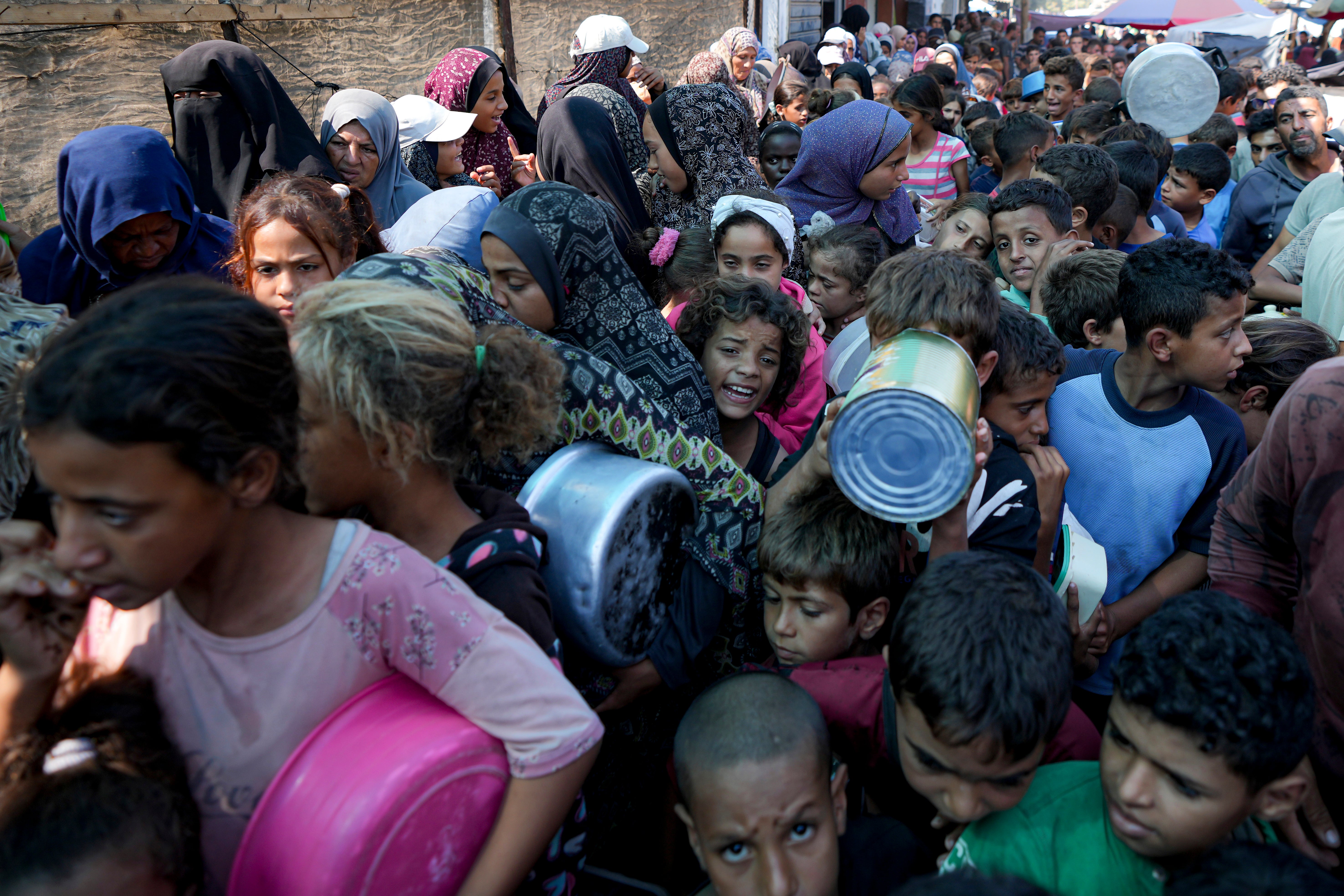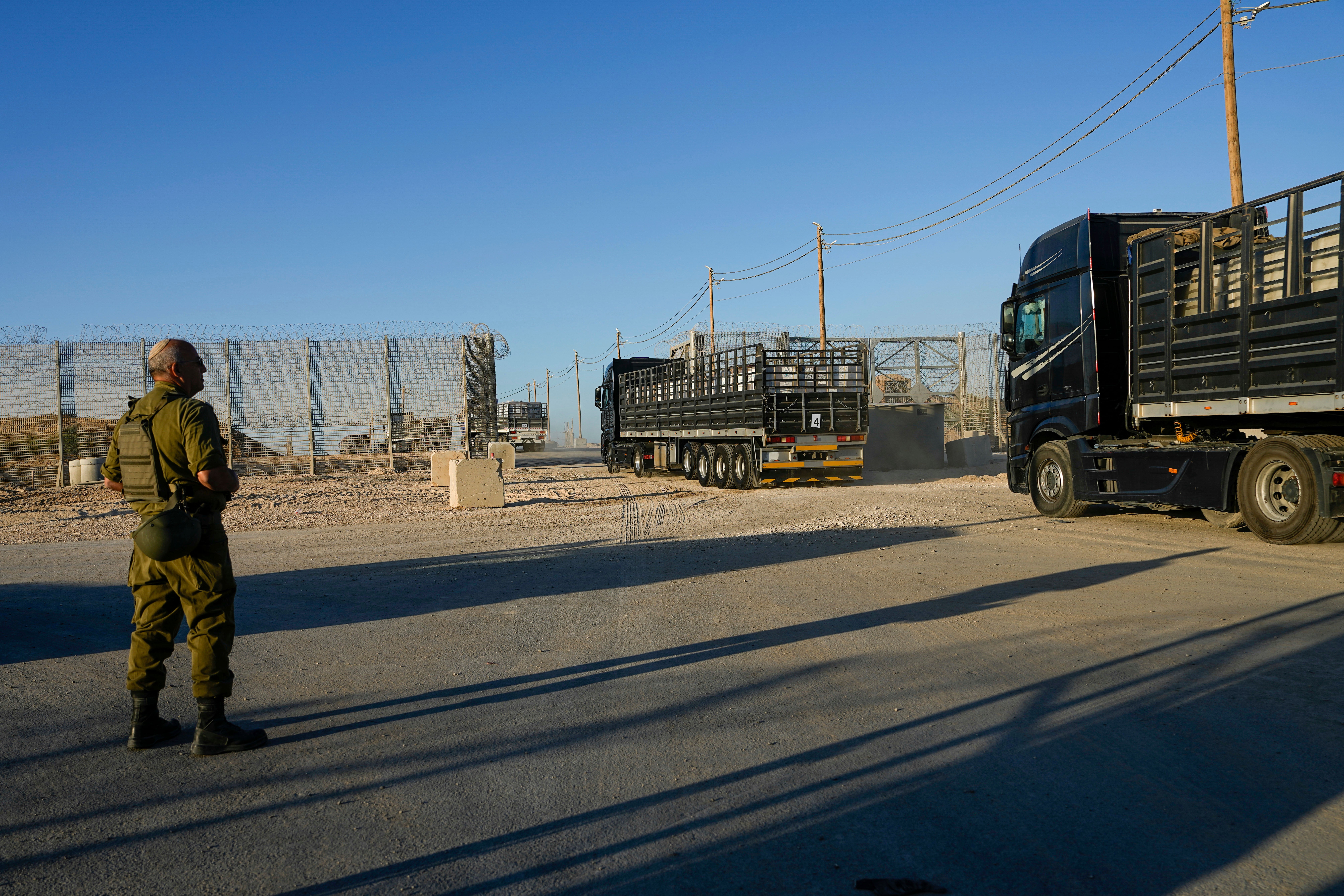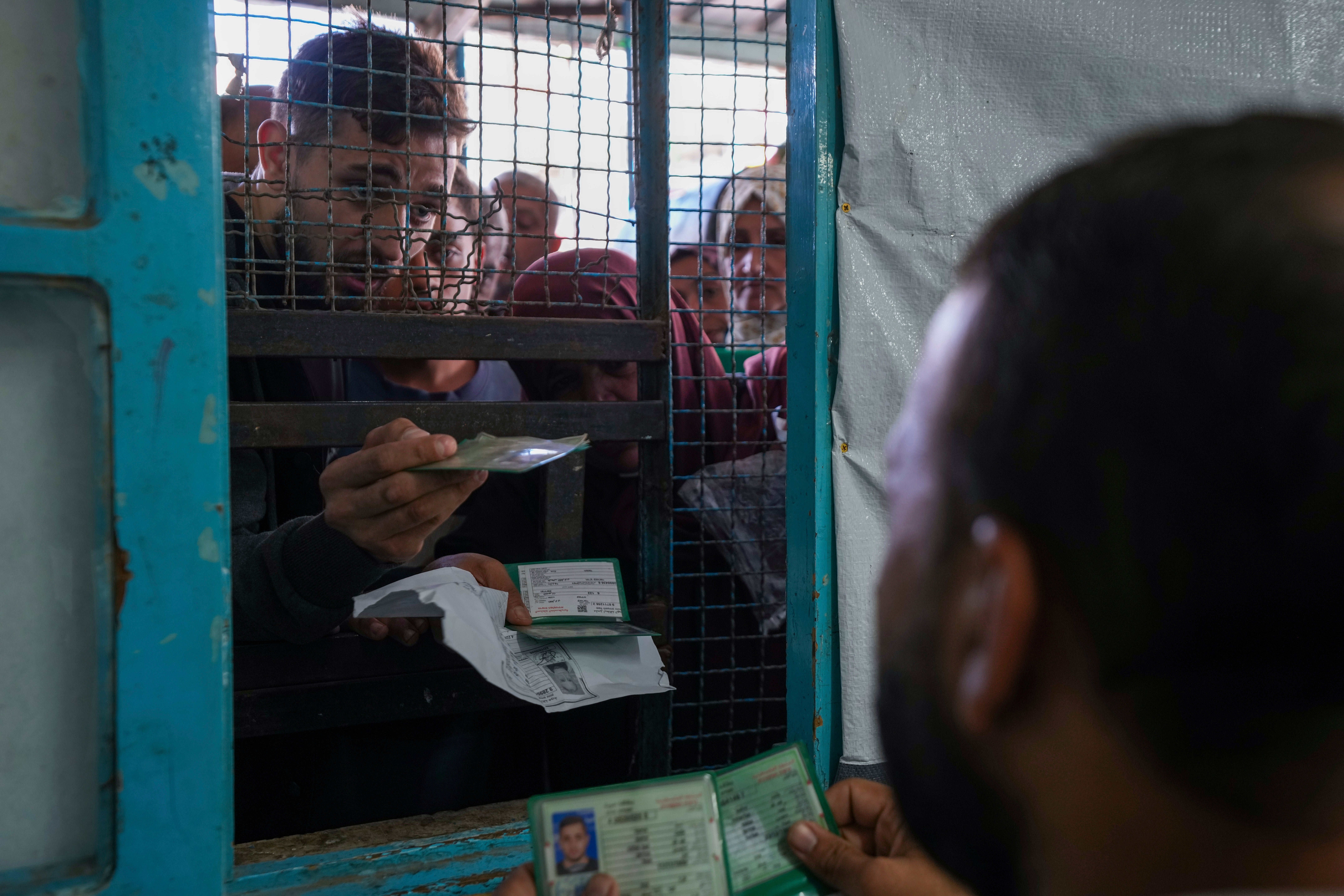Aid groups say Israel has missed US deadline to boost aid into Gaza
With the deadline set to expire, the Israeli the military opens a fifth crossing into Gaza

Your support helps us to tell the story
From reproductive rights to climate change to Big Tech, The Independent is on the ground when the story is developing. Whether it's investigating the financials of Elon Musk's pro-Trump PAC or producing our latest documentary, 'The A Word', which shines a light on the American women fighting for reproductive rights, we know how important it is to parse out the facts from the messaging.
At such a critical moment in US history, we need reporters on the ground. Your donation allows us to keep sending journalists to speak to both sides of the story.
The Independent is trusted by Americans across the entire political spectrum. And unlike many other quality news outlets, we choose not to lock Americans out of our reporting and analysis with paywalls. We believe quality journalism should be available to everyone, paid for by those who can afford it.
Your support makes all the difference.Israel has failed to meet US demands to allow greater humanitarian access to the Gaza Strip, where conditions are worse than at any point in the 13-month-old war, a number of international aid organisations have said.
The obstacles facing aid distribution were on display this week. Even after the military gave permission for a delivery to the northernmost part of Gaza – virtually cut off from food for more than a month by an Israeli siege – the United Nations said it couldn’t deliver most of it because of turmoil and restrictions from Israeli troops on the ground.
Meanwhile, in the south, hundreds of truckloads of aid are sitting on the Gaza side of the border because the UN says it cannot reach them to distribute – again because of the threat of lawlessness, theft and Israeli military restrictions.
The administration of Joe Biden set a deadline last month that expires on Tuesday, for Israel to “surge” more food and other emergency aid into the Palestinian territory. The administration warned that failure to comply could trigger US laws requiring it to scale back military support as Israel wages offensives against Hamas in Gaza and Hezbollah in Lebanon.
Israel has announced a series of steps – though their effect was unclear. On Tuesday, it opened a new crossing in central Gaza, outside the city of Deir al-Balah for aid to enter. It also announced a small expansion of its coastal “humanitarian zone”, where hundreds of thousands of Palestinians are sheltering in tent camps. It connected electricity for a desalination plant in Deir al-Balah.
It said hundreds of food packages and thousands of litres of water had been delivered a day earlier to distribution centres for civilians in the area of Beit Hanoun, on Gaza’s northern edge.

It said 741 trucks of aid had been delivered into northern Gaza through the Erez crossing since October, while 244 patients had been evacuated for treatment.
US State Department spokesperson Matthew Miller said last week that Israel had made some progress but needs to do more. Still US officials haven’t said if they will take any action.
Israel’s new foreign minister, Gideon Saar, appeared to downplay the deadline, telling reporters on Monday that he was confident “the issue would be solved”. The Biden administration may have less leverage after the reelection of Donald Trump, who was a staunch supporter of Israel in his first term.
Eight international aid organisations said in their report on Tuesday that “Israel not only failed to meet the US criteria” but also took actions “that dramatically worsened the situation on the ground, particularly in northern Gaza – that situation is in an even more dire state today than a month ago”.
The report listed 19 measures of compliance with the US demands. It said that Israel had failed to comply with 15 and only partially complied with four. The report was co-signed by Anera, Care, MedGlobal, Mercy Corps, the Norwegian Refugee Council, Oxfam, Refugees International and Save the Children.
In a 13 October letter, the US gave Israel 30 days to, among other things, allow a minimum of 350 truckloads of goods into Gaza each day; open a fifth crossing; allow people in coastal tent camps to move inland before the winter; and ensure access for aid groups to northern Gaza. It also called on Israel to halt legislation that would hinder operations of the UN agency for Palestinian refugees, known as UNRWA.
Aid levels remain far below the US benchmarks. Access to northern Gaza remains restricted, and Israel has pressed ahead with its laws against UNRWA.

Israel launched a major offensive last month in the north, where it says Hamas militants had regrouped. The operation has killed hundreds of people and displaced tens of thousands. Through October and the first days of November, Israel allowed no food to enter the area, where tens of thousands of civilians have stayed despite evacuation orders.
On Tuesday, COGAT – the Israeli military body in charge of humanitarian aid to Gaza – announced it allowed a new delivery of food and water to Beit Hanoun a day earlier. Again, the WFP said that while it tried to send 14 trucks, only three made it to the town “due to delays in receiving authorization for movement and crowds along the route”. When it tried to deliver the rest on Tuesday, Israel denied it permission, it said.
Aid into all of Gaza plummeted in October, when just 34,000 tons of food entered, only a third of the previous month, according to Israeli data.
UN agencies say even less actually gets through because of Israeli restrictions, ongoing fighting and lawlessness that makes it difficult to collect and distribute aid on the Gaza side.
In October, 57 trucks a day entered Gaza on average, and 75 a day so far in November, according to Israel’s official figures. The UN says it only received 39 trucks daily since the beginning of October.
COGAT said 900 truckloads of aid are sitting uncollected on the Gaza side of the Kerem Shalom crossing in the south.
“Before the organizations give out grades, they should focus on distributing the aid that awaits them,” COGAT said in response to the aid groups’ report.
COGAT blamed the drop in October on closures of the crossings for the Jewish high holidays and memorials marking the anniversary of the 7 October 2023 Hamas attack that triggered the war.
The war began last year when Hamas attacked southern Israel, killing around 1,200 people, mostly civilians, and abducting around 250 people. Around 100 hostages are still inside Gaza, a third of whom are believed to be dead.
Israel’s bombardment and ground invasion have killed more than 43,000 Palestinians, more than half of them women and children, according to local health authorities, who don’t say how many of those killed were militants. Around 90 per cent of the population of 2.3 million has been displaced, and hundreds of thousands are packed into squalid tent camps, with little food, water or hygiene facilities.
Associated Press
Join our commenting forum
Join thought-provoking conversations, follow other Independent readers and see their replies
Comments